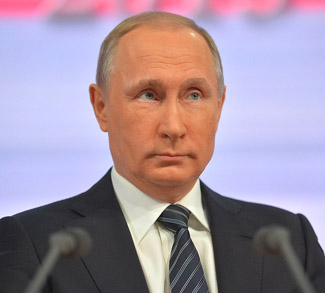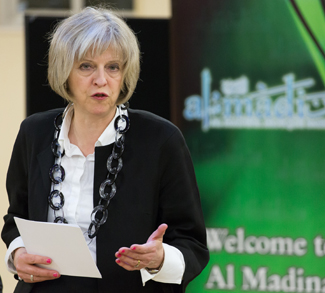The welcome given by Charles III to Ursula von der Leyen, president of the European Commission, to celebrate a deal on the Northern Ireland protocol, was met with a chorus of complaints from Unionist and radical Brexit politicians, despite general approval of British and Irish people. Vain attempts were made to instigate an investigation into whether the palace or No. 10 organized the meeting. The episode echoes the visit made by George V to open the Northern Ireland parliament in 1921. A partisan speech prepared for the King was rejected by the palace and instead he appealed “to all Irishmen to pause, to stretch out the hand of forbearance and conciliation, to forgive and to forget, and to join in making for the land which they love a new era of peace, contentment, and goodwill.” As constitutional monarchs, neither George V nor his great-grandson are permitted to interfere in politics, but they are very influential if their wishes become known, especially with the agreement of the Prime Minister.
Boris Johnson used Northern Ireland to polarize Britain’s Conservative Party, which is officially known as the Conservative and Unionist Party. His actions mirrored those made more than a century ago by Randolph Churchill, who urged the Conservatives “to play the Orange card” in order to disrupt Gladstone’s Liberal government and prevent the restoration of Home Rule in Ireland. Johnson dismissed difficulties regarding the traffic of goods to, and through, Northern Ireland during his negotiations “to get Brexit done.” Almost immediately after the deal was signed, he invoked a provision regarding national emergency to allow Britain to renege on the Northern Ireland protocol. This delay strategy was still festering when personal problems ended Johnson’s premiership. His successor Liz Truss, who ironically is married into an Irish family, demonstrated, in quick-time, the great harm that a hard Brexit would do to Britain. Prime Minister Rishi Sunak has restored equilibrium to the British leadership. On the other hand, Johnson has spotted an opportunity with the NI protocol controversy to begin his return campaign.
Recently the Guardian reported that Johnson was threatening Sunak with a Tory rebellion over Sunak’s new post-Brexit deal and his withdrawal of Johnson’s emergency legislation. Unlike Johnson, Sunak had done his homework. Hardline Brexiteer MPs who would follow Johnson were probably in the minority. Sunak had prepared the ground with a retreat that had broadly discussed how to lift Britain out of the mess left by the hardliners. All routes led back to a rapprochement with the European Union. Excluded from the retreat, some hardliners tried to invoke foreign interference by saying that they were sick of US President Joe Biden, who has been clear that a functioning NI protocol was a necessary step for increased trade with the UK. Keir Starmer let it be known that the Labour Party would support the deal. The Johnson faction shrank even farther. The Democratic Unionist Party, which had closed the NI parliament and sought to inflame their constituency by saying the EU was preventing them from getting cheap sausages from Britain, were cautious, citing the need to study the new deal further. Labour’s endorsement of the deal has removed the DUP’s leverage.
In the meantime in Omagh, the scene of an horrific Real IRA bomb in 1998, a group that claimed to be the Real IRA made an attempt on the life of a senior policeman. The Police Service of Northern Ireland quickly rounded up four Real IRA suspects. Then, in a second round of arrests, they included four well known Protestant loyalists. It turns out that the republican gang had a long association with a loyalist drug dealing gang. PSNI depicted the assassination attempt as criminal with no political motivation.
There has been a demographic change in Northern Ireland with a small majority having a Catholic heritage. Church attendance has dramatically dropped in both communities. The incidence of “mixed-marriage” is increasing. Sinn Fein won the most seats in the last election. If the DUP are convinced to return to parliament, a Sinn Fein First Minister will lead a power-sharing government. The threat of new elections deeply concerns radical loyalists, who are increasingly perceived to be fighting yesterday’s wars.
Abstentionism was a strategy adopted by Sinn Fein in the early 20th century to establish de-facto independence. Elected representatives formed their own parliament known as Dail Eireann, which continues today as the parliament of the Republic of Ireland. Sinn Fein continued its abstention as a tenet of republican faith until 1986, when they reversed the policy with respect to the Dail. Sinn Fein won the most seats in the last election in the Republic of Ireland, complemented later by their victory in Northern Ireland. They were prevented from governing by a coalition of parties that had previously regarded each other as rivals. This coalition is notable also for its adoption of the principles of power sharing by rotating the Prime Minister. For Sinn Fein to make the breakthrough, they probably need to complete their deradicalization by endorsing the PSNI and by taking their seats in Westminster.
In Britain and Ireland, pragmatists are uniting to defeat radicals. Ostracized militarists are reduced to criminality, finding solace in the company of their equally reduced enemy. Coalitions are transferring power seamlessly to successors. Political parties are no longer confined to the roles of government or opposition and instead determine issues from the perspective of their country. Interestingly, this change has occurred without a wholesale change in personnel. Rather politicians are bending to the force of their constituents’ desire for the best possible standard of living. Similar forces are at play in the US, where prominent Republicans are now saying that “different times call for different leaders” and that there will be a better choice of Republican candidates in 2024.
The views expressed in this article belong to the authors alone and do not necessarily reflect those of Geopoliticalmonitor.com.




